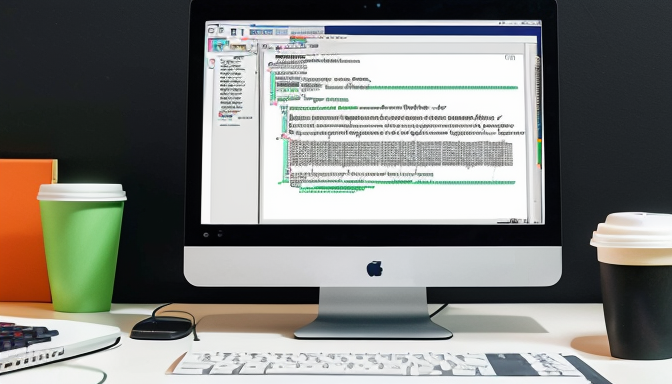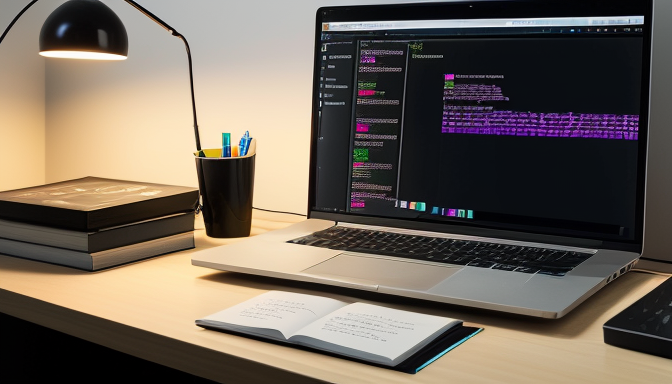Welcome to the fascinating world of coding! Whether you’re just dipping your toes in or you’re a seasoned programmer, there’s always something new to learn. Coding isn’t just about writing lines of code; it’s about solving problems and creating something amazing from scratch. So, what are the secrets that experienced coders swear by? Let’s dive in!
First off, mastering the fundamentals is crucial. Understanding the basics of coding languages like HTML, CSS, and JavaScript can set a solid foundation for your programming journey. But don’t stop there! Explore other languages and frameworks—each has its unique strengths. For example, Python is fantastic for data analysis, while Ruby shines in web development. The more you know, the better equipped you are to tackle various challenges.
Another pro tip? Embrace collaboration! Coding is often a team effort, and being able to communicate effectively with your peers can make a world of difference. Utilize tools like Git for version control and platforms like GitHub to share your projects. This not only enhances your skills but also opens doors to exciting opportunities within the coding community.
Finally, don’t shy away from mistakes. Every coder has faced bugs and errors; it’s part of the learning curve. The key is to analyze what went wrong and learn from it. Remember, coding is like a puzzle—sometimes you just need to try different pieces until everything fits perfectly!
Essential Coding Practices
When diving into the world of coding, it’s crucial to equip yourself with essential practices that can significantly enhance your programming journey. Think of coding as a vast ocean; without the right tools and knowledge, you might find yourself adrift. So, what can you do to navigate these waters more effectively? Here are some tips that seasoned professionals swear by:
First off, always prioritize code readability. Writing code that is easy to read and understand not only helps you but also your fellow developers. Imagine trying to read a novel that’s poorly written; frustrating, right? Use meaningful variable names, consistent indentation, and comments to clarify your thought process. This way, anyone who picks up your code can easily follow along.
Next, embrace the power of version control systems like Git. These tools are like safety nets, allowing you to track changes, collaborate seamlessly, and revert to previous versions if something goes awry. It’s a game-changer, especially when working on open-source projects or in teams.
Lastly, don’t shy away from seeking out tutorials and resources. The coding community is vast, and there’s a treasure trove of knowledge out there. Websites, forums, and even YouTube channels can offer valuable insights into various coding languages and web development techniques. Remember, every expert was once a beginner!
In summary, by focusing on readability, utilizing version control, and leveraging available resources, you’ll set yourself up for success in your coding endeavors. So, are you ready to dive in?

Common Pitfalls to Avoid
When diving into the world of coding, it’s all too easy to trip over some common pitfalls that can derail your progress. One of the most frequent mistakes is neglecting code readability. Imagine trying to read a novel that’s been scribbled in a hurry—confusing, right? Well, your code deserves the same clarity as a well-written book. Always use meaningful variable names and consistent indentation. This not only helps you but also your fellow developers who might read your code later.
Another major hurdle is overlooking documentation. Think of documentation as a map for your code. Without it, you might find yourself lost in your own project. Whether it’s comments in your code or a separate README file, keep it detailed and up-to-date. This practice not only aids you but also helps others who may work on your project in the future.
Additionally, many coders tend to ignore error handling. It’s like driving a car without brakes—sure, it might work for a while, but eventually, you’re heading for a crash. Always anticipate possible errors and handle them gracefully. This will save you a lot of headaches down the line.
Finally, don’t forget to embrace version control. Using tools like Git can prevent you from losing your precious code and allow you to track changes over time. Think of it as a safety net that catches you when you fall. By avoiding these pitfalls, you’ll not only write cleaner code but also enjoy a smoother coding journey.
Frequently Asked Questions
- What are the best practices for writing clean code?
Writing clean code is like crafting a masterpiece; it requires attention to detail! Start by using meaningful variable names, keeping functions small and focused, and adding comments where necessary. This not only makes your code easier to read but also simplifies collaboration with other developers.
- How can I avoid common coding mistakes?
Think of coding mistakes as potholes on your journey. To avoid them, always test your code frequently, use version control systems, and read documentation thoroughly. Additionally, consider code reviews as a way to catch errors before they become bigger issues!
- What tools can help improve my coding efficiency?
Imagine having a toolbox filled with all the right tools! Some essential tools include Integrated Development Environments (IDEs) like Visual Studio Code, version control systems like Git, and debugging tools that help identify issues quickly. These can significantly boost your productivity and make coding a breeze!
- How do I stay updated with the latest coding trends?
Staying updated is like keeping your finger on the pulse of the coding world! Follow coding blogs, join online forums, and participate in coding communities. Engaging with fellow coders can provide insights into new technologies and practices that can enhance your skills.
